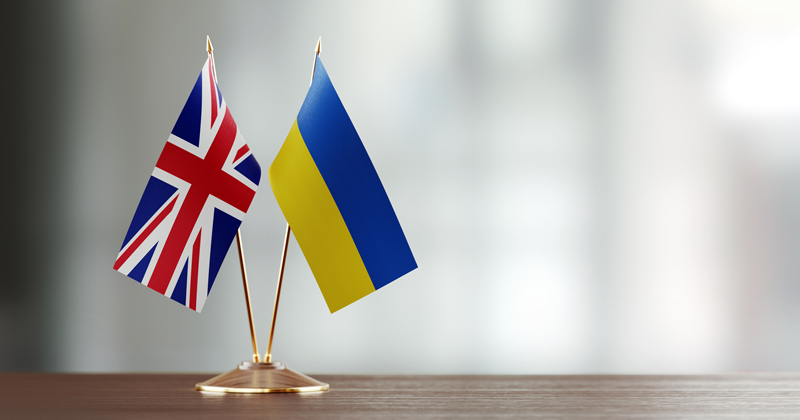Ukraine is in the headlines again this week as peace talks between Russia and the United States are set to begin, notably without Ukraine‘s direct involvement. On the ground, however, Ukrainian children can get directly involved with British schools, shining the light of education into the darkness of war.
Svitlo Education was born from the belief that ignorance fuels conflict and that education is the antidote. The school connects passionate volunteer teachers with Ukrainian students eager to learn, offering them the chance of the education they’ll need to build a better future.
But what I wasn’t expecting when I launched this online school was the positive feedback loop that has brought so many benefits to teachers and schools here too.
School leaders have found in us an incredible opportunity to empower their teachers and pupils to make a meaningful difference, to develop their skills along the way and to make connections around the world.
Amid recruitment and retention challenges, low morale and motivation-sapping workload, volunteering to teach our Ukrainian pupils has proven to be the kind of professional development and growth many were desperate for.
Schools that have partnered with us often describe the experience as transformative. Teachers and students alike feel empowered, knowing they’re contributing to something bigger than themselves.
In part, that’s because teaching at Svitlo is unlike any traditional classroom experience.
Volunteers can teach any subject, from creative writing to coding, and have the freedom to design engaging, innovative learning opportunities. They can choose to work with children aged 10 to 13 or 14 to 18, tailoring lessons to meet the needs and interests of these remarkable students.
Lessons, conducted over Zoom with professional accounts provided by us, last just 45 minutes. Volunteers can teach as little as once a week or more frequently, depending on their availability, which means they can flex their timings around pinch points in the school year.
We give our students hope, and they give plenty back in return
This flexibility allows teachers to explore subjects in creative ways they might not have the chance to in their day jobs. And the freedom from the usual prescriptive curriculum is invigorating.
One of our wonderful volunteers, who has been with us for two years now, told me that teaching for us “felt like coming home. The courage, kindness and determination of these children are unparalleled. They’ve made me a better person and a better teacher.”
Pupils can get involved too. We welcome student-led initiatives such as teaching clubs and discussion groups. These experiences are invaluable for young people to learn more about their place in the world and different cultures.
Communicating with our pupils also offers a unique insight into resilience and perseverance. They haven’t just adapted to online learning; they’ve shown unwavering commitment to education despite unimaginable challenges.
Where we have brought British and Ukrainian pupils together, it has fostered empathy, broadened horizons, and created a lasting impact on all involved.
What has started for many as an individual way to bring their skills to bear on a moral issue has grown into school-wide initiatives. And the impact has been felt beyond the classroom.
Mufti days, cake sales and sponsored runs have brought communities together and helped keep our online school going. Donations of old English-language books have made their way to our students, who have used them not only to support their learning but to escape moments of terror in bomb shelters.
We give our students hope, and they give plenty back in return. They show up every day, eager to learn and connect with the world beyond their borders.
In the short term, we aim to help Ukrainian children catch up on education disrupted by war, improve their English, and find joy and connection in challenging times.
Through entertaining classes, friendly competitions and opportunities for new friendships, we hope to bring a sense of normalcy and childhood back to our students’ lives.
And in the long term, we know we are educating future global leaders equipped with English skills, democratic values and a strong sense of resilience.
If by the same stroke we can inspire teachers anew for the moral core of their work and help them re-discover their passion, and if we can also empower pupils to make a real difference in the world, then that’s an educational win-win-win.
There are other ways to get involved with Ukrainian schools, notably the British Council’s UK-Ukraine School Partnerships programme. Applications for this close on 28 February.
Whatever way you choose, here’s your chance for moral leadership with global impact.












Your thoughts